16 Foods To Prevent Hair Fall And Stimulate Hair Growth
Pro tips to watch what you eat to avoid losing your precious tresses and keep them healthy

Image: ShutterStock
If you are concerned about excessive hair fall, we have found a solution! You can eat these top foods to prevent hair fall. Hair requires important nutrients to be healthy and strong. Thus, a balanced diet is essential for hair health and preventing hair loss. Including nutrient-rich foods in your meals can enhance your hair’s strength and vitality. By simply making a few dietary modifications, such as improving our consumption of specific foods you can achieve healthy, lustrous tresses. But what exactly are these foods? We have listed the 16 foods for hair to prevent unwanted hair loss and boost hair growth in this article. Scroll down to find out what to eat to stop hair fall immediately.
In This Article
Best Natural Foods To Prevent Hair Loss
Protein – An Essential Nutrient To Prevent Hair Loss
1. Eggs
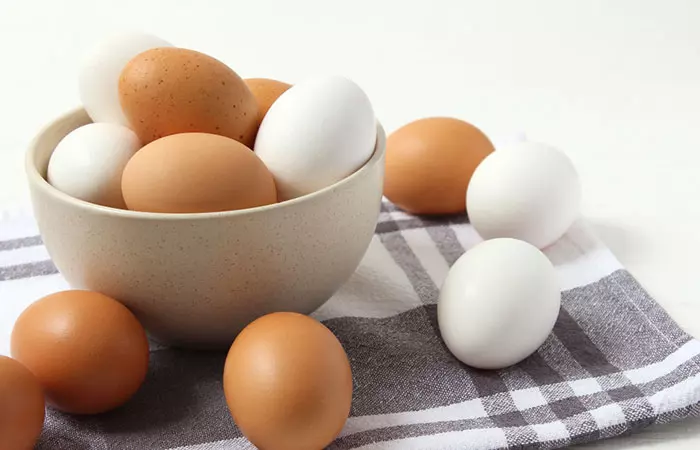
A medium-sized (50 g) egg contains 6.3 g protein, various vitamins, and minerals that strengthen the hair follicles (1). Anecdotal evidence suggests that eggs can make the hair shiny and strong, prevent hair breakage, and reduce brittleness.
A study showed that the sulfur amino acids in proteins are the precursors to keratin hair protein synthesis that strengthens the hair roots and prevents premature hair loss (2).
A study shows that eggs contain a key hair growth factor that stimulates human dermal papilla cells (a group of cells that controls hair production and hair growth cycle) for new hair development (3).
Eggs are packed with vitamin B8 or biotin that helps in hair growth and prevents hair loss (4). A study published in the International Journal of Trichology shows that biotin deficiency can lead to hair loss among women (5).
In a review, it was found that the average biotin intake of the western population is around 35 to 70 mcg/day, and 1 in 112,271 people has profound biotin deficiency, while 1 in 129,282 suffers from partial deficiency. In total, 1 in 60,089 live births have either profound or partial deficiency. Biotinidase deficiency is a rare condition, with only 1 in every 137,401 people reporting a profound deficiency worldwide. Partial deficiency is estimated to be slightly more common, with 1 in 109,921 people affected. The Comprehensive incidence of biotinidase deficiency is 1 in 61,067 people.
 Quick Tip
Quick Tip2. Poultry
Poultry meat is an excellent source of protein, vitamins, and minerals (6). These are some essential nutrients that nourish hair and stop hair fall. A study published in the Journal of Dermatology Practical & Conceptual states that protein deficiency impacts hair structure and hair growth, resulting in telogen effluvium (temporary hair loss) (7).
Another study shows that nutrient deficiencies can result in androgenic alopecia (hair loss due to hormonal imbalance), female-pattern baldness, chronic telogen effluvium, and alopecia areata (circular bald patches) (8), (9).
The animal fat in poultry meat – omega-6 fatty acids – stimulates dermal papilla and controls the hair growth cycle for healthy tresses (10).
3. Lentils
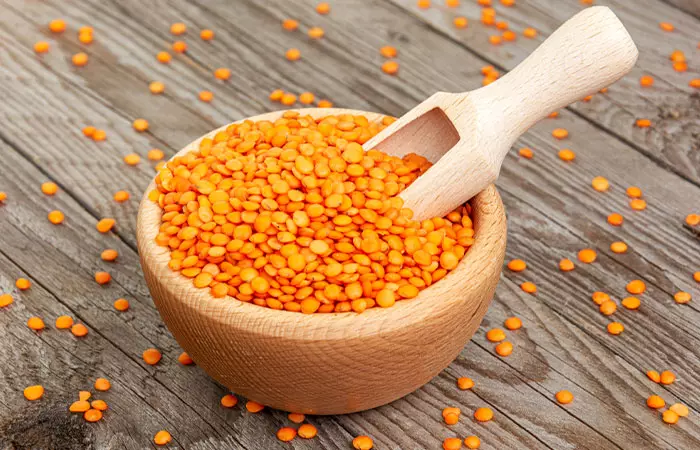
Lentils like split pigeon peas, red lentils, peas, yellow lentils, chickpeas, and kidney beans are rich in folic acid, iron, phosphorus, zinc, magnesium, and fiber (11), (12). A study showed that mineral and zinc deficiency resulted in diffuse alopecia (general distribution of hair loss in the scalp) among children (13), (14), (15).
The proteins in lentils also play an important role in healthy hair development. Nutrient deficiency, especially lack of essential amino acids and micronutrients, can lead to telogen effluvium, male-pattern baldness, and female-pattern baldness (16).
4. Fish
Fish is rich in protein and omega-3 fatty acids that improve hair health. A study published in the International Journal of Molecular Science showed that fish oil from mackerel stimulated dermal papilla cells and promoted hair growth by activating the anagen (growth phase of hair cycle) pathways (17).
Another study showed that fish oil supplementation rich in omega-3 fatty acids promotes hair growth and reduces thinning of hair (18).
5. Lean Beef
A lean cut of beef is rich in iron, zinc, selenium, vitamins, and biologically useful proteins that promote healthy hair growth and reduce hair loss (19), (2). A study published in the Journal of Korean Medical Science showed an inverse relationship between iron deficiency and hair loss (20). A deficiency of vitamins and minerals can also result in non-scarring alopecia or hair loss (21).
Key Takeaways
- Eggs are rich in biotin which may stimulate hair growth and reduce the rate of hair fall.
- Sunflower seeds may help prevent androgenetic alopecia while flax seeds may improve the protective shield of the hair and protect it from premature hair loss.
- Kale contains vitamins A and C that may fight free radicals and reduce oxidative stress.
- Probiotics in Greek yogurt may improve the overall health of the hair and stimulate the development of hair follicles.
Healthy Fats – Key Nutrients To Hair Growth
6. Walnuts
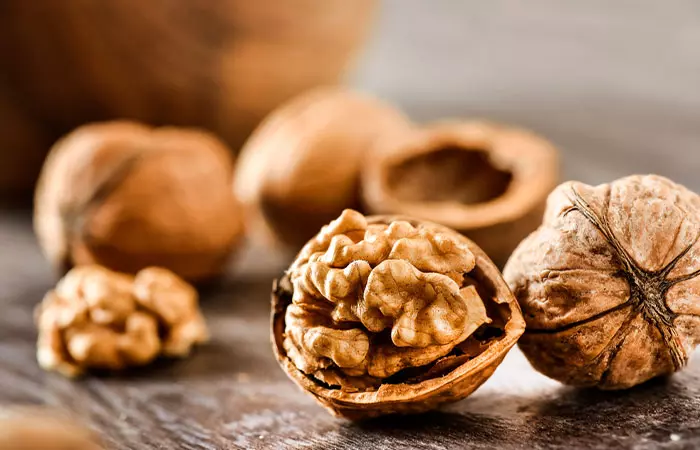
Walnuts are known as “hair food” because they contain omega-3 fatty acids – nutrients essential for healthy and luscious hair. They are also rich in protein and macro minerals that are important for hair growth (22).
Further, walnuts contain some essential minerals and vitamins like selenium, zinc, iron, and vitamins B1, B6, and B9, which stimulate hair growth and reduce hair fall. They also contain biotin, vitamin E, protein, and magnesium that strengthen the hair and maintain scalp health. The deficiency of these vitamins and minerals leads to hair loss (14).
7. Almonds
Almonds are rich in magnesium, selenium, protein, unsaturated fatty acids, and vitamins (23). Studies have shown that magnesium acts as a co-factor of different metabolic reactions that stimulate hair follicles (24), (2). Consume 4-5 soaked almonds daily to strengthen the hair and maintain healthy hair growth.
8. Seeds
Seeds, especially sunflower seeds, are rich in beta-sitosteroli A rare plant lipid that can prevent hair loss by blocking the production of DHT, the sex hormone responsible for male pattern baldness. that is effective in preventing androgenetic alopecia and promote healthy hair growth (25), (26).
A study in the Journal of Alternative and Complementary Medicine showed that 5-alpha-reductase inhibitors, especially saw palmetto extracts and beta-sitosterol, help in the treatment of androgenic alopecia (27).
Flax seeds are rich sources of omega-3 fatty acids and an alternative to marine products (28). A study on rhesus monkeys shows that omega-3 fatty acids improve the hair coat and prevent premature hair loss (29).
Soak and grind flax seeds and add them to juices, salads, or desserts. You can also sprinkle them on smoothies or peanut butter.
Green Leafy Vegetables – Prevent Baldness
9. Spinach
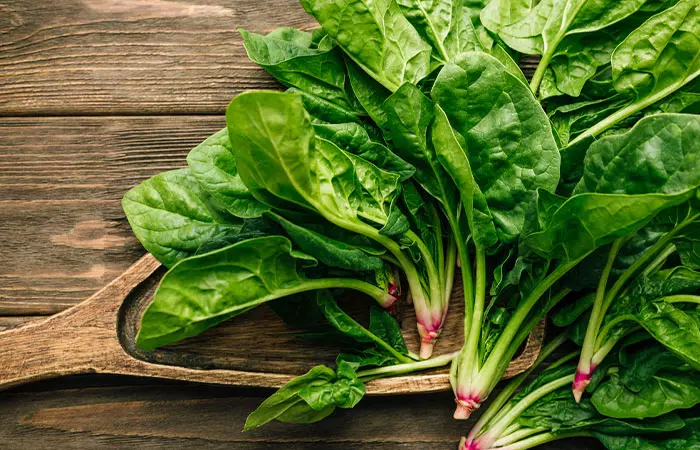
Spinach is a green leafy vegetable that is rich in calcium, iron, magnesium, phosphorus, folic acid, and vitamins (30). These nutrients are essential for healthy hair growth. The high calcium levels in spinach facilitate vitamin D absorption, an important vitamin that prevents female-pattern hair loss or telogen effluvium (31).
Spinach is also rich in iron that improves oxygen supply to the scalp for healthy hair growth. People with male-pattern hair loss and premenopausal female-pattern hair loss show low serum ferritin levelsi Blood levels of a protein called ferritin that stores iron in your cells, low levels of which can cause iron deficiency anemia. (32). The condition can be improved by including iron-rich foods in the diet.
A study published in the Indian Journal of Dermatology showed that female androgenetic alopecia was linked to lower zinc and iron levels (33). Therefore, consume a bowl of blanched spinach 2-3 times a week for an adequate supply of essential vitamins and minerals.
10. Kale
Kale is rich in vitamins A, K, C, folic acid, calcium, and magnesium (34). These are essential nutrients for healthy hair growth. Aging or graying of hair, decreased hair production, or alopecia results from oxidative stress (35). The vitamins A and C in kale protect the hair from free radicals by reducing and neutralizing them.
Vegetables – Powerhouses Of Vitamins And Minerals For Healthy Hair
11. Sweet Potato
Sweet potatoes contain copper, iron, zinc, and protein, which play a significant role in hair loss, especially alopecia areata and telogen effluvium (36), (37). Sweet potato is also rich in vitamin A that acts as an antioxidant to reduce the damaging effects of free radicals, a major cause of hair loss and graying of hair (38).
12. Carrot
Carrots
are powerhouses of vitamins A and C, carotenoids, and potassium (39). Anecdotal evidence suggests that this vegetable may contribute to hair health. However, more research is needed in this regard.
Too much or too little of vitamin A is harmful for the hair. A study showed that vitamin A deficiency lead to dry, sparse hair, whereas too much of it lead to hair loss (40), (41).
 Quick Tip
Quick Tip13. Bell Peppers
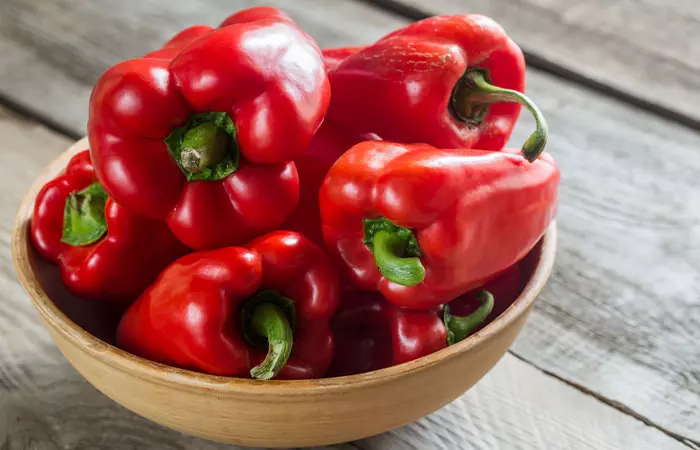
Bell peppers are one of the richest sources of vitamin C (42). They help prevent hair breakage and dryness. Vitamin C also helps in iron absorption and prevents hair thinning (43), (32). Moreover, bell peppers are a powerhouse of different minerals and vitamins for hair fall control (44).
14. Oranges
Oranges are rich in vitamin C that boosts hair growth. They also contain antioxidants, flavonoidsi A class of plant chemicals with varying structures that are well-known for their positive health effects. , beta-carotenei A red-orange pigment that is a precursor to vitamin A, which promotes cell regrowth and helps prevent hair thinning. , magnesium, and fiber. Thus, orange juice consumption can help improve hair health (45).
Other vitamin-C-rich fruits you can have for better hair health are gooseberries and blueberries.
Whole Grains – Aid Healthy Hair And Prevent Hair Fall
15. Barley
Barley is rich in fiber, protein, antioxidants, and vitamin E (46), (47). A study published in the Journal of Tropical Life Science Research showed that supplementation of tocotrienol (derivative of vitamin E) reduced oxidative stress in the scalp – one of the major reasons for premature hair loss (48).
Probiotics To Prevent Hair Loss
16. Greek Yogurt
Greek yogurt is one of the richest sources of probiotics that boost gut health and promote healthy hair (49). A mice study showed that probiotic-rich yogurt promoted hair follicle development and delayed hair loss (50), (51).
Besides including these foods in your daily diet, you can also prevent hair loss in other ways by understanding the causes of it. Read on to know more.
Causes Of Hair Fall
Various factors can contribute to hair fall (52), (53):
- Genetics: Hereditary factors play a significant role in hair loss, androgenetic alopecia (52), (53).
- Hormonal Imbalance: Fluctuations in hormones during pregnancy, childbirth, menopause, or thyroid disorders can lead to hair loss (52).
- Nutritional Deficiencies: A diet lacking essential nutrients such as iron, protein, vitamin D, biotin, zinc, and selenium weakens the hair and leads to hair loss (52).
- Stress: Chronic stress triggers a condition called telogen effluvium, causing hair to enter the resting phase prematurely and fall out (52), (53).
- Medical Conditions: Autoimmune diseases like alopecia areata and certain skin conditions affect the hair follicles and cause hair loss (52), (53).
- Harsh Hair Treatment: Excessive use of chemicals and heat styling and factors like dandruff and poor scalp health can damage the hair, leading to hair loss and breakage.
- Medications: Some drugs, like chemotherapy drugs, can cause hair loss as a side effect (52).
Sometimes, certain foods may contribute to inflammation in the body. A beauty and lifestyle blogger who has alopecia areata listed out ingredients such as white refined sugar and hydrogenated vegetable oil that caused her to lose hair. She informs her readers: “If you experience hair loss as I do, inflammation of your scalp will be the precursor to hair loss (i).”
Check out a few tips in the following section for better hair care to prevent hair loss.
Tips To Avoid Hair Loss
- Handle your hair gently. Do not pull it too hard.
- Keep hairstyling with hot tools to a minimum, and make sure to use a protective serum before styling.
- Never comb wet hair.
- Do not rub wet hair with a cloth or towel. Dab it with a cloth and let it dry naturally.
- You can comb wet hair. However, make sure you do it gently.
- Use hair care products according to your hair type.
- Do not shampoo more than 2-3 times a week because your scalp needs time to regain its natural oils.
- Consult a nutritionist to customize your diet if you experience significant hair loss.
Frequently Asked Questions
How long does it take to notice results from dietary changes for hair growth?
Typically, it takes about 4-7 months to see noticeable results from dietary changes for hair growth. So you have to stick to a particular diet for quite some time. However, the rate of hair growth can vary from individual to individual as it is a natural process, influenced by overall health, genetics, and nutrient intake.
Which fruit is best for stopping hair fall?
While no fruit may completely prevent hair loss, citrus fruits may help reduce hair fall greatly due to the presence of a compound known as limonin. It helps boost the growth of dermal papilla cells located at the bottom of the hair follicles and plays a role in hair growth and maintenance (52). However, more research is warranted in this regard.
Can diet lead to hair loss?
Yes, restrictive and crash diets may lead to hair loss as they may eliminate or restrict certain food groups, triggering nutritional deficiencies, which may affect your hair health. Moreover, poorly planned diets may lack essential nutrients like proteins, vitamins, and minerals, which are important for hair health (7), (8), (9).
References
Articles on StyleCraze are backed by verified information from peer-reviewed and academic research papers, reputed organizations, research institutions, and medical associations to ensure accuracy and relevance. Read our editorial policy to learn more.
- The Impact of Egg Nutrient Composition and Its Consumption on Cholesterol Homeostasis
https://www.ncbi.nlm.nih.gov/pmc/articles/PMC6126094// - Nutrition of women with hair loss problem during the period of menopause
https://www.ncbi.nlm.nih.gov/pmc/articles/PMC4828511/ - Naturally Occurring Hair Growth Peptide: Water-Soluble Chicken Egg Yolk Peptides Stimulate Hair Growth Through Induction of Vascular Endothelial Growth Factor Production
https://pubmed.ncbi.nlm.nih.gov/29583066// - The Golden Egg: Nutritional Value, Bioactivities, and Emerging Benefits for Human Health
https://www.ncbi.nlm.nih.gov/pmc/articles/PMC6470839/ - Serum Biotin Levels in Women Complaining of Hair Losshttps://www.ncbi.nlm.nih.gov/pmc/articles/PMC4989391/
- Role of poultry meat in a balanced diet aimed at maintaining health and wellbeing: an Italian consensus document
https://www.ncbi.nlm.nih.gov/pmc/articles/PMC4462824/ - Diet and hair loss: effects of nutrient deficiency and supplement usehttps://www.ncbi.nlm.nih.gov/pmc/articles/PMC5315033/
- Nutrition and hair
https://pubmed.ncbi.nlm.nih.gov/20620758/ - Nutrition and hair: deficiencies and supplements
https://pubmed.ncbi.nlm.nih.gov/23159185/ - Role of Arachidonic Acid in Promoting Hair Growth
https://www.ncbi.nlm.nih.gov/pmc/articles/PMC4737836/ - Lentil and Kale: Complementary Nutrient-Rich Whole Food Sources to Combat Micronutrient and Calorie Malnutrition.
https://www.ncbi.nlm.nih.gov/pmc/articles/PMC4663599/ - Lentils (Lens culinaris Medikus Subspecies culinaris): a whole food for increased iron and zinc intake.
https://pubmed.ncbi.nlm.nih.gov/19459707/ - Diffuse alopecia in a child due to dietary zinc deficiency.
https://pubmed.ncbi.nlm.nih.gov/17618180/ - Vitamin and Mineral Deficiencies in Patients With Telogen Effluvium: A Retrospective Cross-Sectional Study.
https://pubmed.ncbi.nlm.nih.gov/27741341/ - Analysis of serum zinc and copper concentrations in hair loss.
https://pubmed.ncbi.nlm.nih.gov/24371385/ - Prevalence of Nutritional Deficiencies in Hair Loss among Indian Participants: Results of a Cross-sectional Study.
https://www.ncbi.nlm.nih.gov/pmc/articles/PMC5596642/ - Mackerel-Derived Fermented Fish Oil Promotes Hair Growth by Anagen-Stimulating Pathways.
https://www.ncbi.nlm.nih.gov/pmc/articles/PMC6164340/ - A 3-month, randomized, double-blind, placebo-controlled study evaluating the ability of an extra-strength marine protein supplement to promote hair growth and decrease shedding in women with self-perceived thinning hair.
https://pubmed.ncbi.nlm.nih.gov/25883641/ - Apports nutritifs des viandes bovines” [Nutritional value of beef].
https://pubmed.ncbi.nlm.nih.gov/22844741/ - Iron plays a certain role in patterned hair loss.
https://pubmed.ncbi.nlm.nih.gov/23772161/ - The Role of Vitamins and Minerals in Hair Loss: A Review.
https://pubmed.ncbi.nlm.nih.gov/30547302/ - Potentials of raw and cooked walnuts (Tetracapidium conophorum) as sources of valuable nutrients for good health
https://pubmed.ncbi.nlm.nih.gov/27462693/ - Nuts, almonds
https://fdc.nal.usda.gov/fdc-app.html#/food-details/170567/nutrients - The role of micronutrients in alopecia areata: A Review
https://www.ncbi.nlm.nih.gov/pmc/articles/PMC5685931/ - Analysis of beta-sitosterol in seeds and nuts using pressurized liquid extraction and liquid chromatography
https://pubmed.ncbi.nlm.nih.gov/19531884/ - Blockade of Androgen Markers Using a Novel Betasitosterol, Thioctic Acid and Carnitine-containing Compound in Prostate and Hair Follicle Cell-based Assays
https://pubmed.ncbi.nlm.nih.gov/26990224/ - A randomized, double-blind, placebo-controlled trial to determine the effectiveness of botanically derived inhibitors of 5-alpha-reductase in the treatment of androgenetic alopecia
https://pubmed.ncbi.nlm.nih.gov/12006122/ - The cardiovascular effects of flaxseed and its omega-3 fatty acid, alpha-linolenic acid
https://www.ncbi.nlm.nih.gov/pmc/articles/PMC2989356/ - Fatty Acid supplements improve hair coat condition in rhesus macaques
https://www.ncbi.nlm.nih.gov/pmc/articles/PMC5597456/ - Spinach, raw
https://fdc.nal.usda.gov/food-details/168462/nutrients - The Role of Vitamin D in Non-Scarring Alopecia
https://www.ncbi.nlm.nih.gov/pmc/articles/PMC5751255/ - Iron plays a certain role in patterned hair loss
https://www.ncbi.nlm.nih.gov/pmc/articles/PMC3678013/ - Estimation of Zinc and Iron Levels in the Serum and Hair of Women with Androgenetic Alopecia: Case–control Study
https://www.ncbi.nlm.nih.gov/pmc/articles/PMC6124235/ - Kale, cooked, boiled, drained, without salt
https://fdc.nal.usda.gov/fdc-app.html#/food-details/169238/nutrients - Oxidative Stress in Ageing of hair
https://www.ncbi.nlm.nih.gov/pmc/articles/PMC2929555/ - Sweet potato, raw, unprepared (Includes foods for USDA’s Food Distribution Program)
https://fdc.nal.usda.gov/fdc-app.html#/food-details/168482/nutrients - Analysis of Serum Zinc and Copper Concentrations in Hair Loss
https://www.ncbi.nlm.nih.gov/pmc/articles/PMC3870206/ - The role of micronutrients in alopecia areata: A Review
https://www.ncbi.nlm.nih.gov/pmc/articles/PMC5685931/ - Carrots, raw
https://fdc.nal.usda.gov/fdc-app.html#/food-details/170393/nutrients - The Role of Vitamins and Minerals in Hair Loss: A Review
https://pubmed.ncbi.nlm.nih.gov/30547302/ - Unusual manifestation of vitamin A deficiency presenting with generalized xerosis without night blindness
https://www.ncbi.nlm.nih.gov/pmc/articles/PMC5930185/ - Peppers, sweet, yellow, raw
https://fdc.nal.usda.gov/fdc-app.html#/food-details/169383/nutrients - Interaction of vitamin C and Iron
https://pubmed.ncbi.nlm.nih.gov/6940487// - Use of Vitamins and Minerals in the Treatment of Hair Loss: A Cross-Sectional Survey among Dermatologists in Saudi Arabia
https://pubmed.ncbi.nlm.nih.gov/25348762/ - 100% Orange juice consumption is associated with better diet quality, improved nutrient adequacy, decreased risk for obesity, and improved biomarkers of health in adults: National Health and Nutrition Examination Survey, 2003-2006
https://www.ncbi.nlm.nih.gov/pmc/articles/PMC3545988/ - Preventive and Therapeutic Role of Functional Ingredients of Barley Grass for Chronic Diseases in Human Beings
https://www.ncbi.nlm.nih.gov/pmc/articles/PMC5904770/ - Antioxidant capacity and vitamin E in barley: Effect of genotype and storage
https://pubmed.ncbi.nlm.nih.gov/25976999// - Effects of Tocotrienol Supplementation on Hair Growth in Human Volunteers
https://www.ncbi.nlm.nih.gov/pmc/articles/PMC3819075/ - Effects of Dietary Yogurt on the Healthy Human Gastrointestinal (GI) Microbiome
https://www.ncbi.nlm.nih.gov/pmc/articles/PMC5374383/ - Probiotic Bacteria Induce a ‘Glow of Health
https://www.ncbi.nlm.nih.gov/pmc/articles/PMC3547054/ - Probiotic ‘glow of health’: it’s more than skin deep
https://www.ncbi.nlm.nih.gov/pmc/articles/PMC4354898/ - Limonin, a Component of Immature Citrus Fruits, Activates Anagen Signaling in Dermal Papilla Cells
https://www.ncbi.nlm.nih.gov/pmc/articles/PMC9787355/
Read full bio of Beurena Johnson
Read full bio of Anjali Sayee
Read full bio of Ramona Sinha
Read full bio of Swathi E






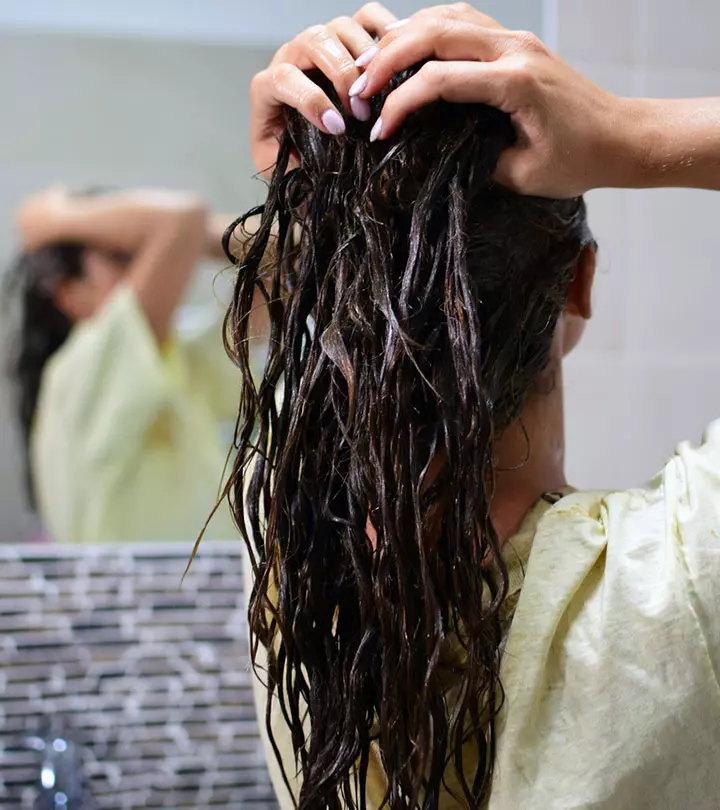
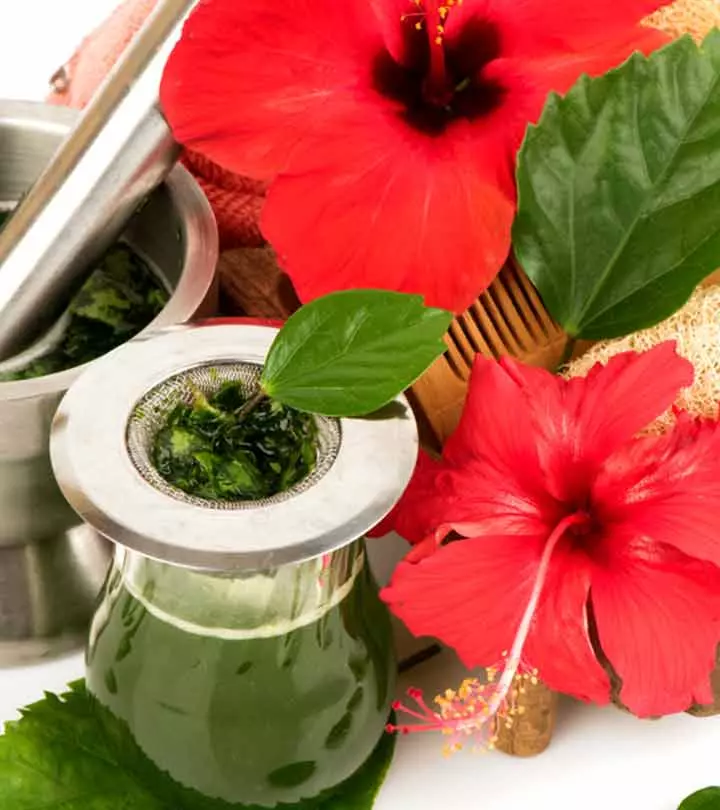
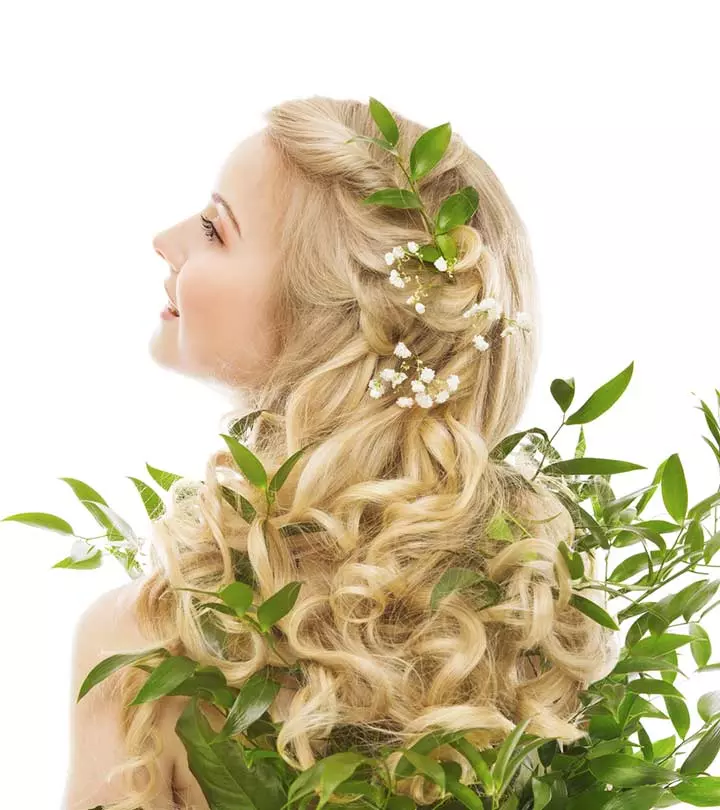
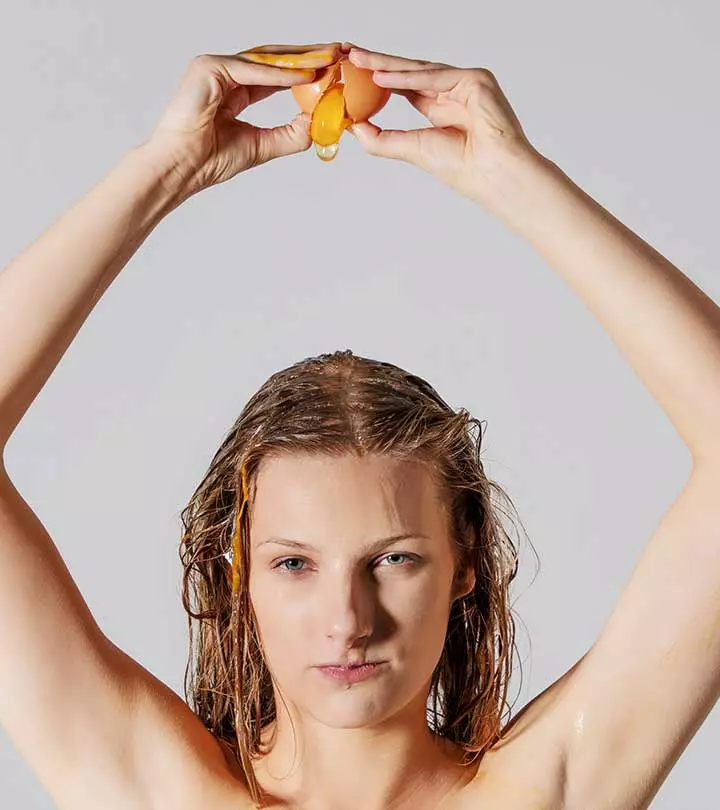
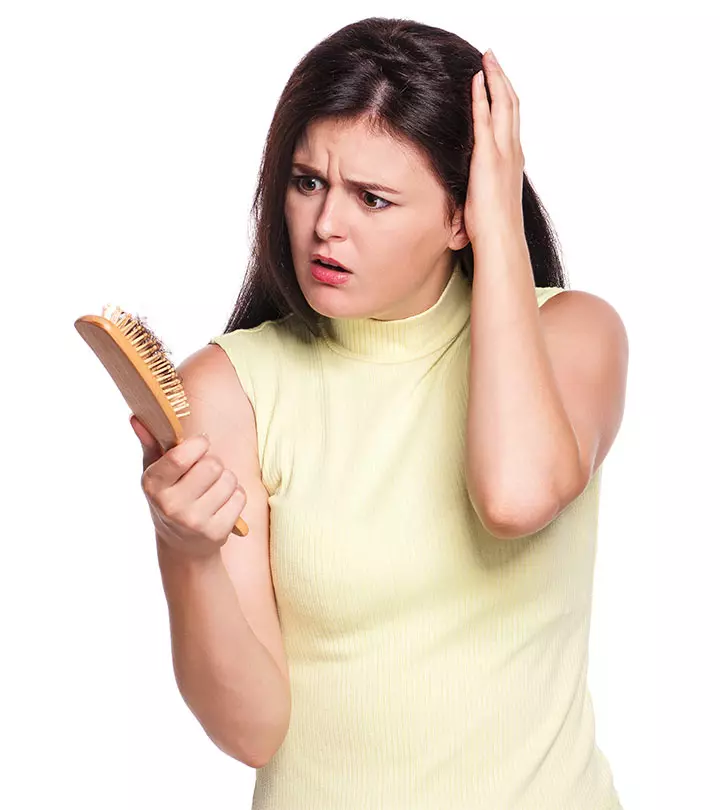
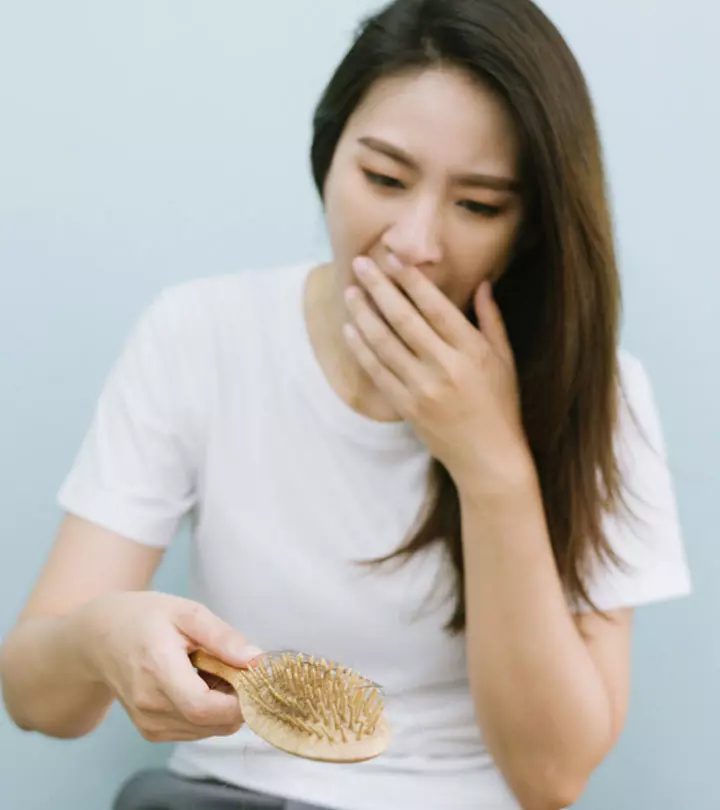
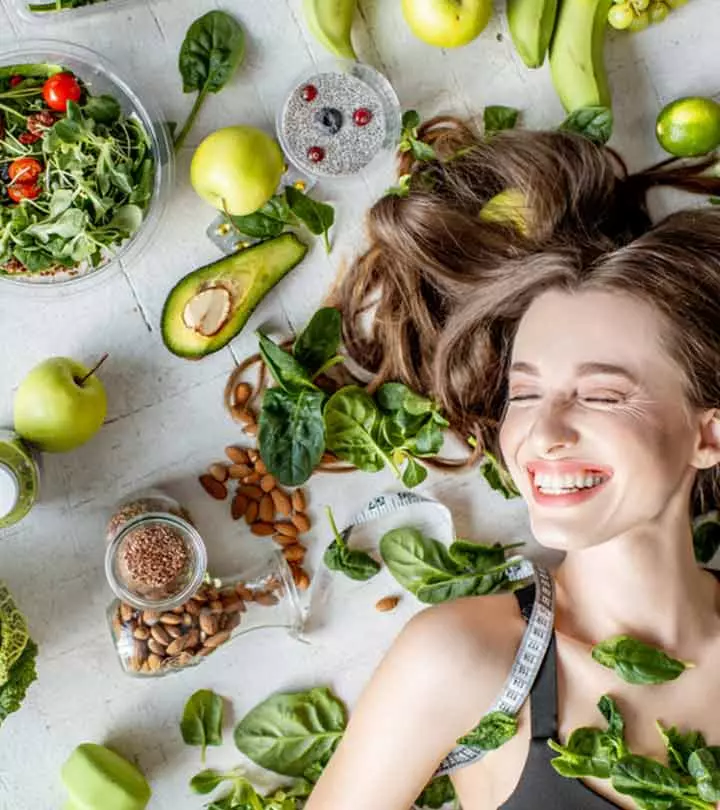
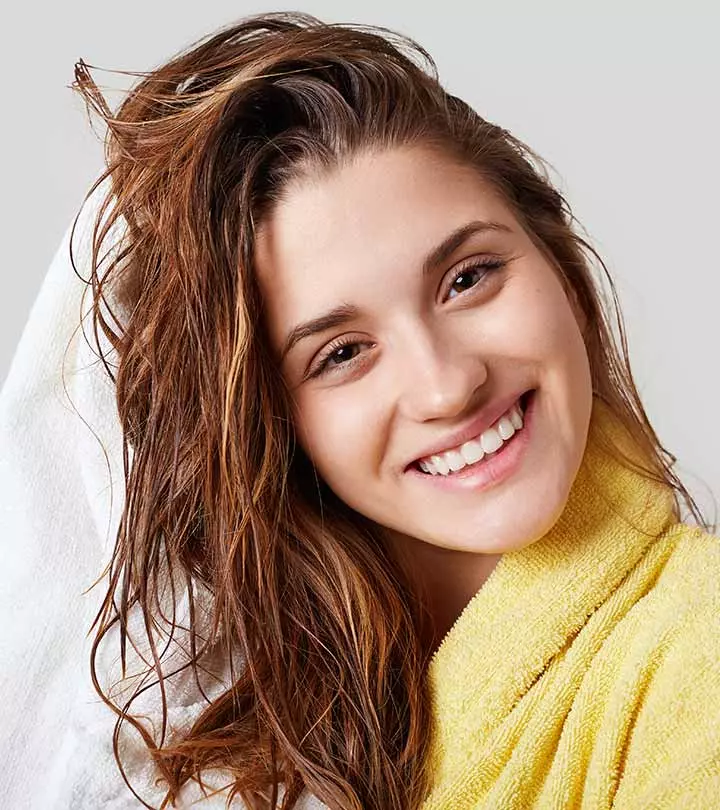
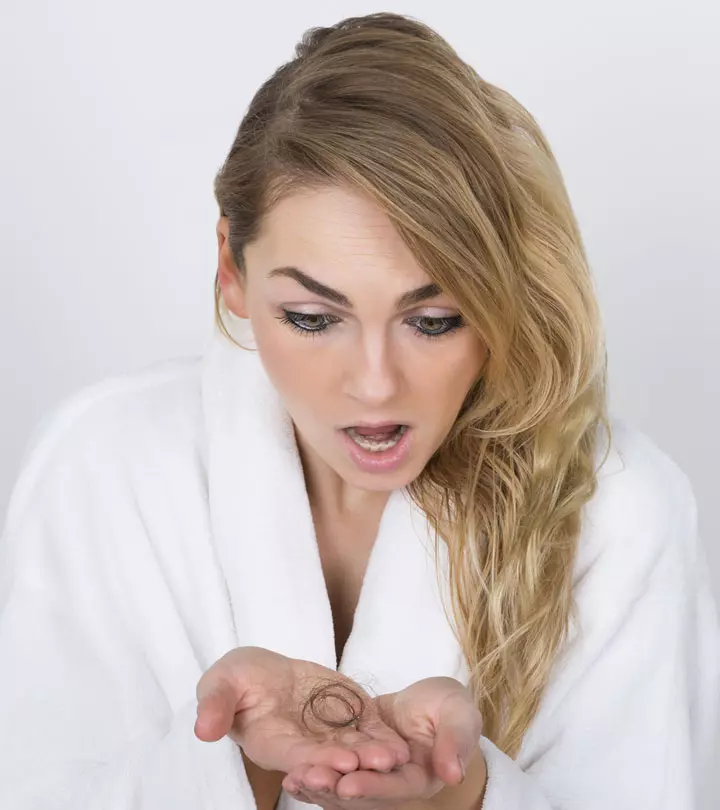
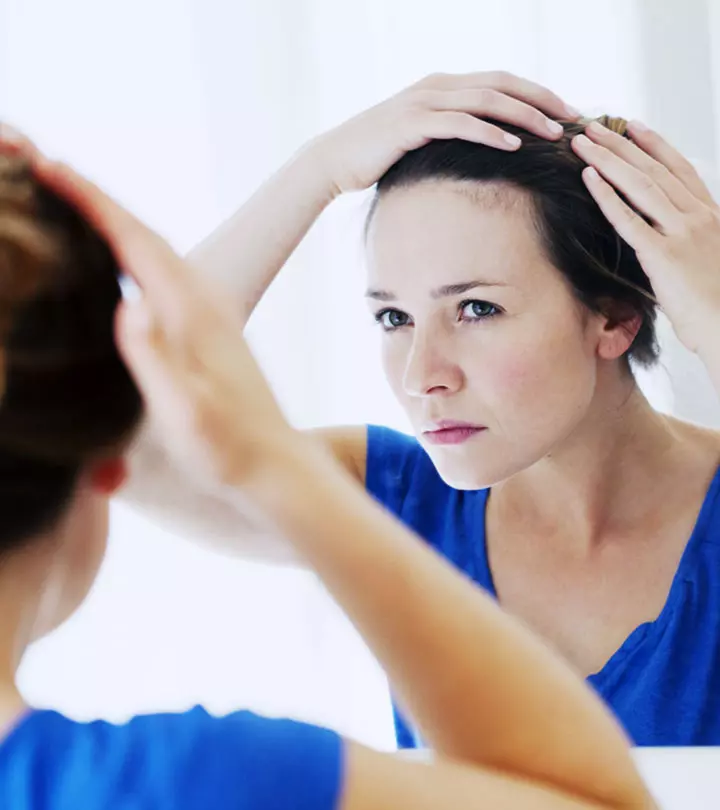
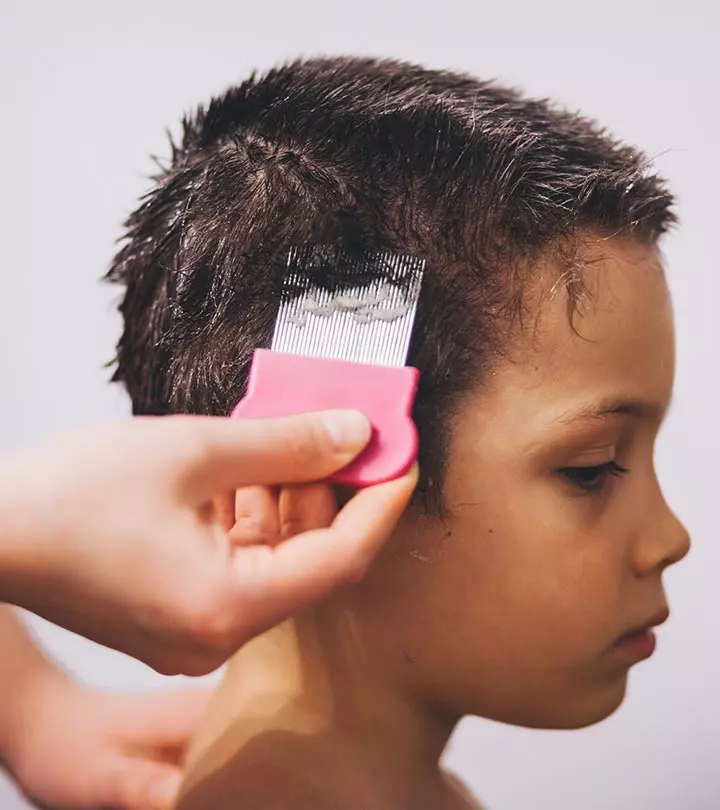

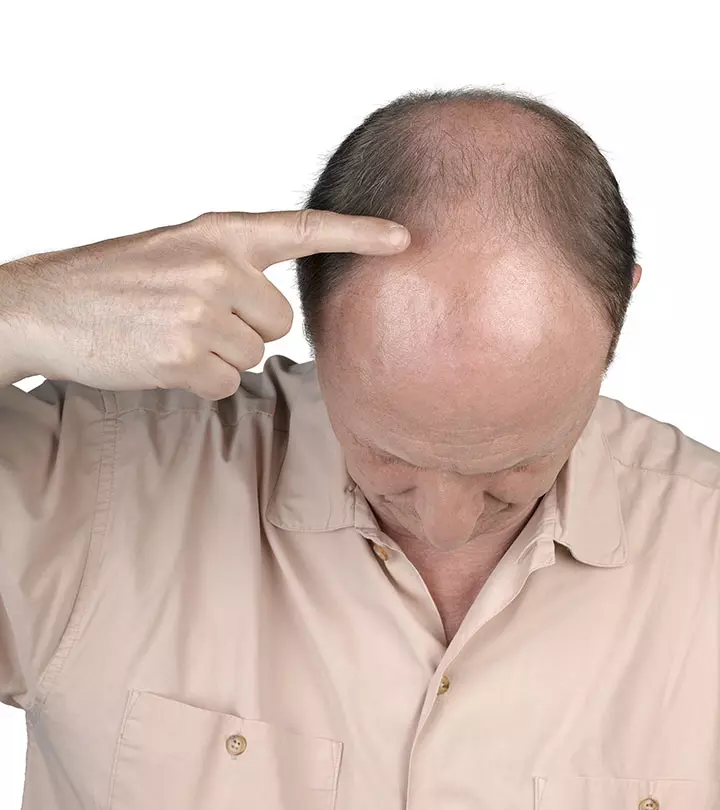
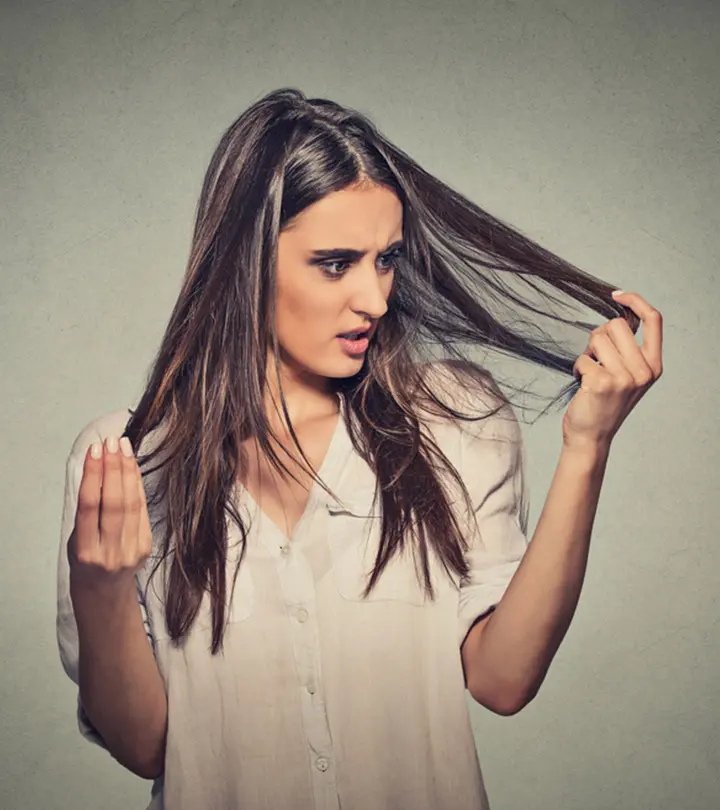
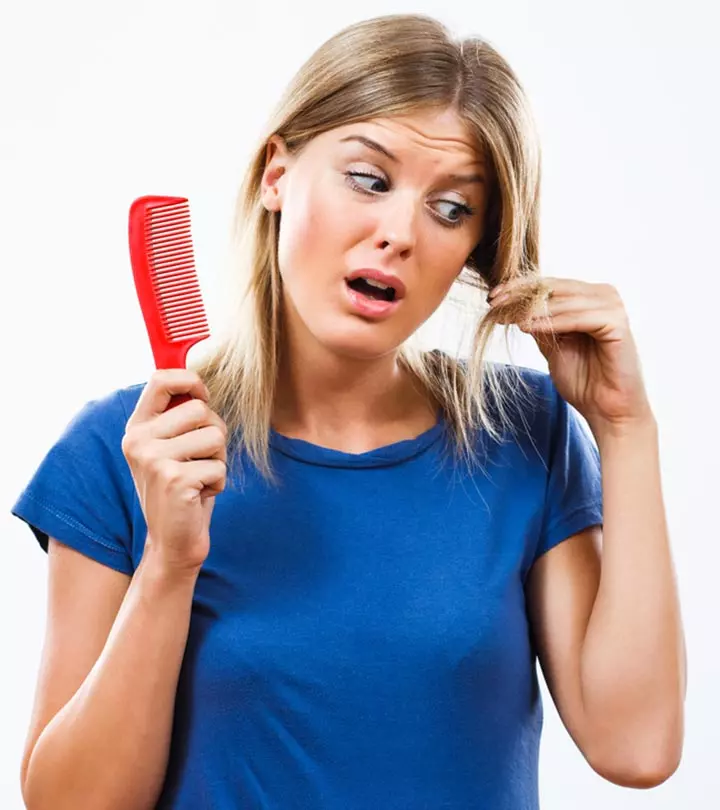
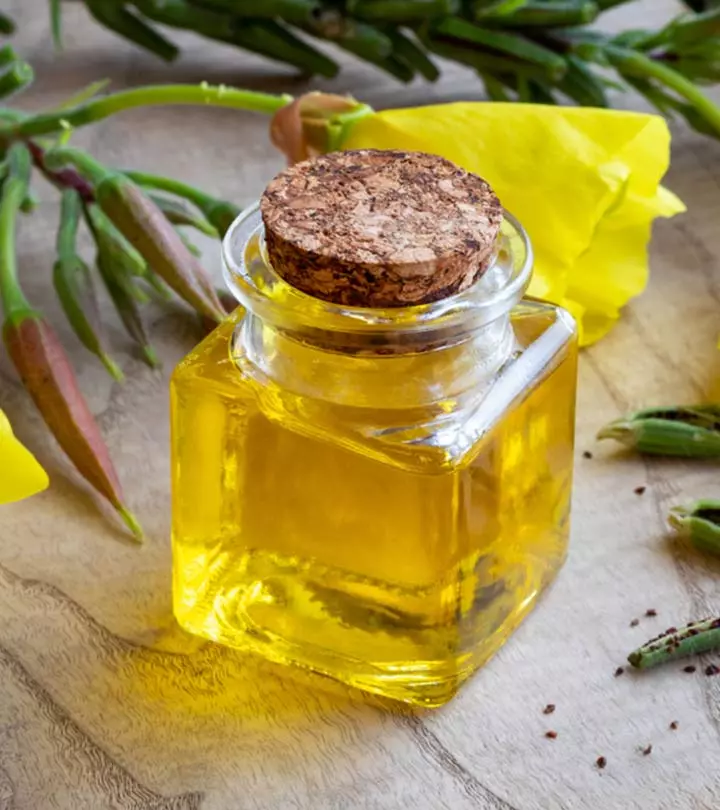
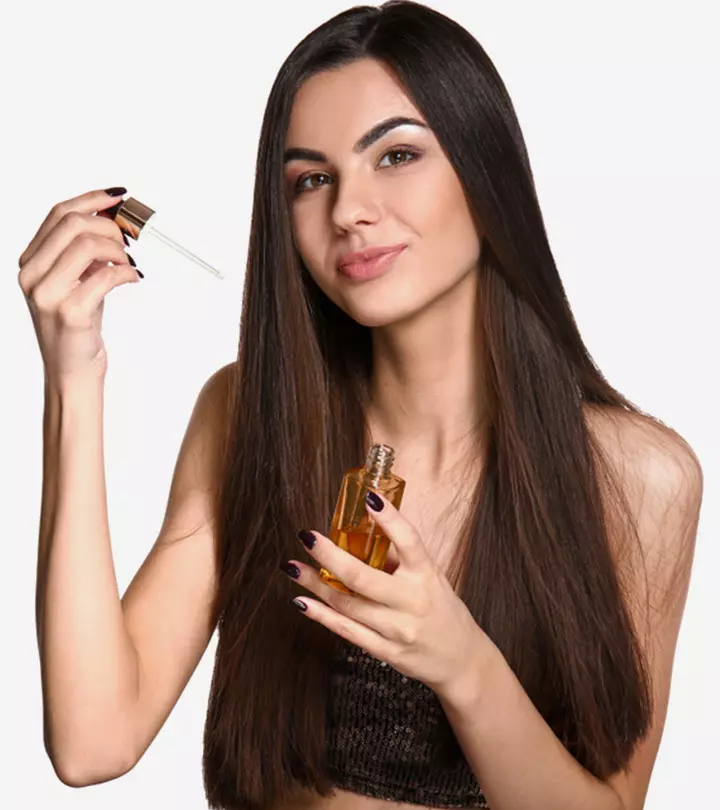
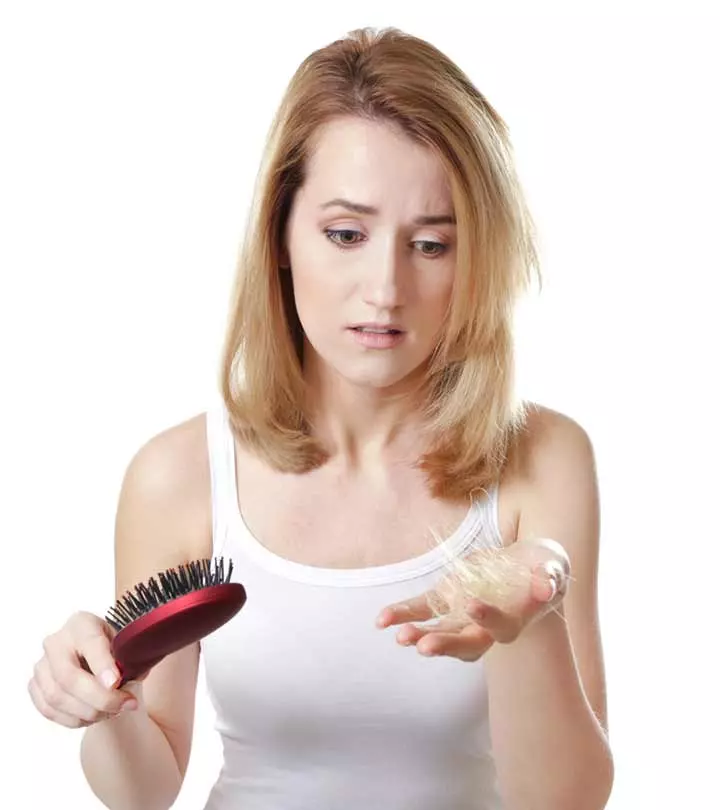
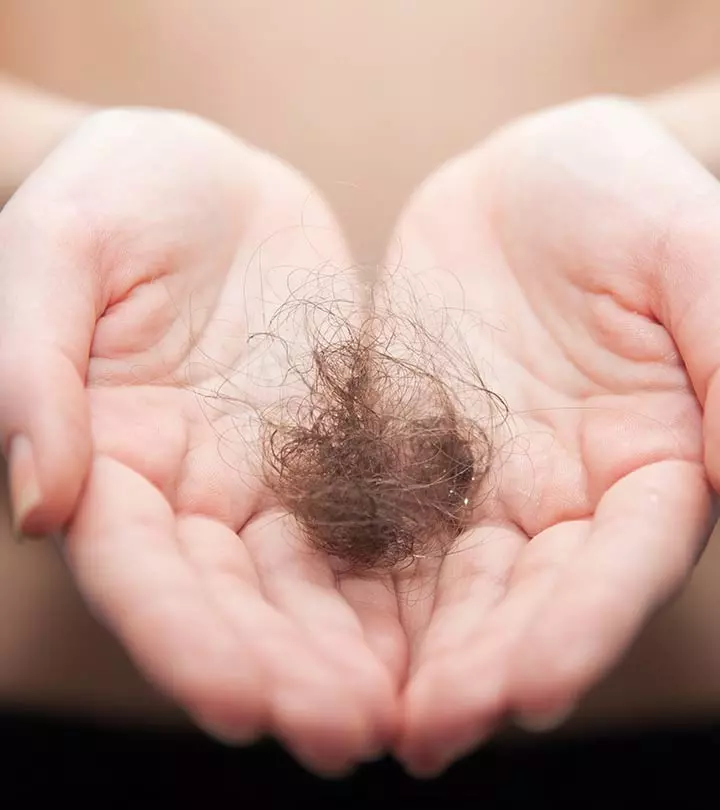
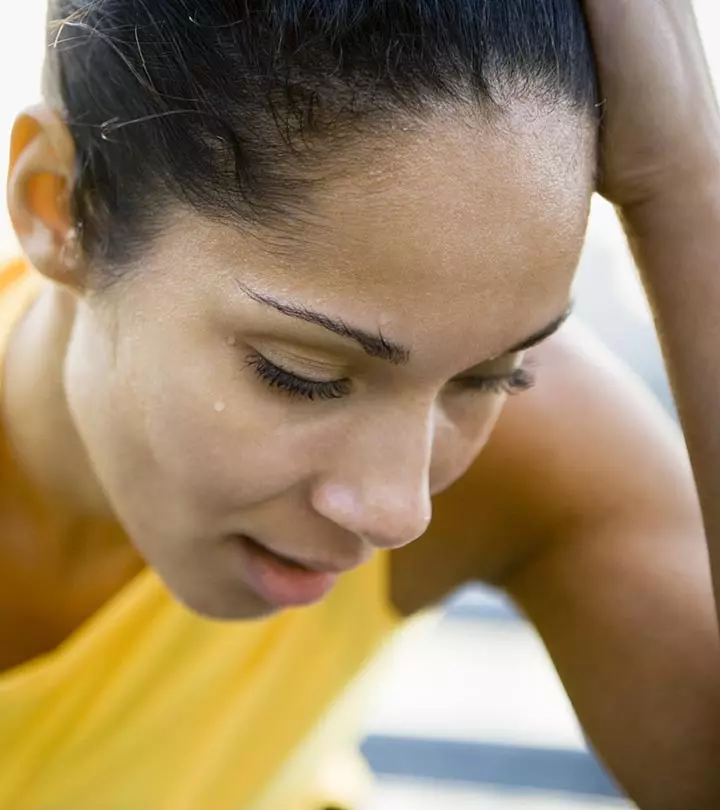
Community Experiences
Join the conversation and become a part of our empowering community! Share your stories, experiences, and insights to connect with other beauty, lifestyle, and health enthusiasts.